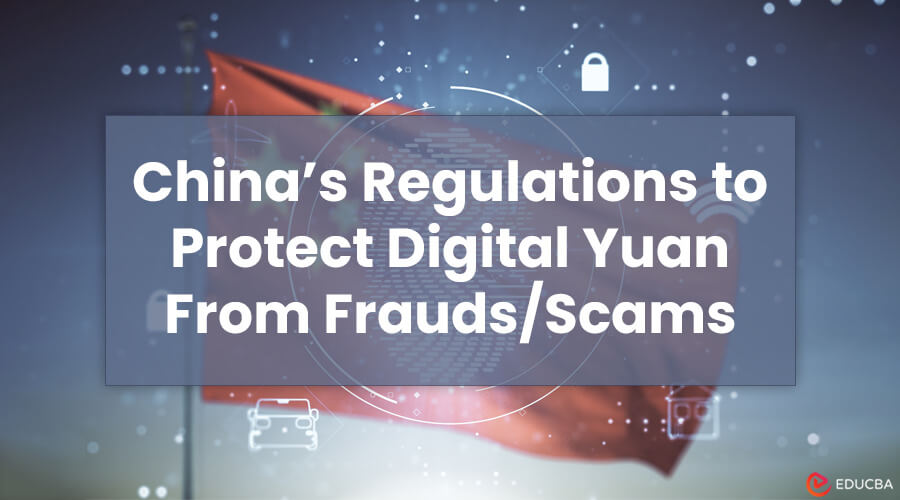Introduction to Digital Yuan Regulations
The Digital Yuan, or e-CNY, is China’s central bank digital currency (CBDC), a Chinese cryptocurrency that China’s citizens use as an alternative to physical yuan currency. Digital Yuan regulations safeguard the currency’s integrity.
China introduced the digital yuan in 2022 with the “Digital Yuan App.” It is currently available in 20+ cities in China. However, with its emergence came opportunities and challenges, including fraud threats. For instance, a few fake apps have emerged since the app’s arrival. Therefore, robust government regulations are vital in safeguarding the currency’s integrity, a responsibility China addresses through comprehensive legal measures.
Despite emerging scams, the digital yuan is becoming increasingly popular in the cryptocurrency world. Therefore, investing in it could be advantageous for investors. If you are an investor interested in investing in Digital Yuan, you can learn about investing at Yuan Prime.
Current Chinese Digital Yuan Regulations
Understanding government digital yuan regulations against fraud requires understanding the current measures in place. In recent years, China has been leading in developing a regulatory framework to govern the ever-growing world of digital currencies. As this Chinese currency gains importance worldwide, China is stepping up efforts to enforce stricter regulations and oversight.
The design of this regulatory framework is specifically to prevent fraud and stabilize the financial system. Here are some of the current regulations:
- The People’s Bank of China has implemented several digital yuan regulations to monitor its transactions and ensure they comply with the law.
- The legal support has been strengthened by changing existing financial laws and creating new digital yuan regulations and laws to combat digital currency fraud. This evolving legal environment highlights the punishment for fraudulent digital yuan actions and clarifies the duties of both service providers and users in maintaining the currency’s integrity.
- An integral component of the regulatory approach includes the collaboration between various government agencies. The central bank, cybersecurity bodies, and financial oversight authorities have been coordinating to track irregular activities and flag potential fraud.
By establishing these regulatory measures, the Chinese government aims to build a strong digital financial ecosystem that protects users and maintains economic stability.
While these steps are commendable, the government continues to refine and adapt its strategies to address the dynamic nature of digital currency fraud. They acknowledge that the fight against such financial crimes requires constant vigilance and swift adaptation to technological advancements.
Enforcing Anti-Fraud Regulations
Enforcing anti-fraud digital yuan regulations involves various methods, ensuring wrongdoers face swift and decisive action. Chinese regulators focus heavily on enforcing the laws that control digital currencies. Different government bodies, such as law enforcement, courts, and financial regulators, work together to enforce regulations and safeguard the digital yuan.
Here’s what the different Chinese authorities are contributing to digital yuan regulations.
➔ Introduction of Specialized Law Enforcement Agencies
They are using robust tools and resources to detect fraudulent activities. Specialized units within these agencies utilize advanced surveillance techniques to monitor the flow of digital yuan. They ensure that they investigate any anomalies properly. Once they identify any fraudulent behavior, these units act swiftly to catch the individuals involved, break the networks behind these schemes, and recover any illegal funds.
➔ Improved Judiciary System
The judiciary system is responsible for interpreting the laws and providing justice to those found guilty of fraud. Courts are responsible for adjudicating cases involving digital currency fraud. Moreover, the legal system ensures that courts handle these cases with the requisite expertise and urgency. Penalties for fraud are severe, often involving substantial fines and imprisonment, reflecting the gravity with which the Chinese government views these offenses.
➔ Stricter Control By Financial Regulators
Regulators like the People’s Bank of China continue to refine and enforce compliance requirements for financial institutions dealing with the digital yuan regulations. These entities have to implement strict internal controls to prevent fraud. They also undergo regular audits to verify their compliance with anti-fraud regulations. If these institutions don’t comply, they could face penalties like fines, license revocation, or operational limitations.
➔ Promoting Public Awareness Campaigns
The government also promotes this enforcement regime using public campaigns that educate the masses on the risks associated with digital currency fraud. The Chinese government understands that an informed public is a critical defense against fraud. So, it invests in ongoing awareness programs.
Final Thoughts
Effective government digital yuan regulations are central to its success, ensuring a secure financial environment. China’s ongoing regulatory efforts demonstrate a commitment to innovation matched by stringent fraud prevention measures.
The Chinese government uses enforcement strategies to form a strong defense against fraud. They prevent criminals from committing fraud and establish mechanisms to uphold the currency’s security. As the digital yuan regulations system advances, enforcement agencies also evolve, adapting their strategies to counter new forms of digital currency fraud.
Recommended Articles
We hope you found this article explaining China’s Digital Yuan regulations informative. For similar articles, visit the below recommendations.



